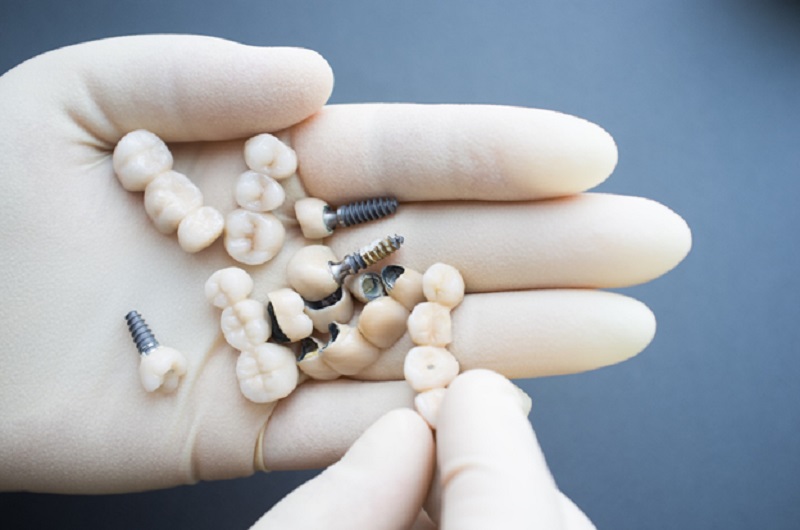Tooth loss can be caused by a variety of factors ranging from poor oral hygiene to therapy treatments for cancer. Either way, it can be a very distressing experience to lose your teeth and can have a negative impact on your confidence and sometimes even your mental health. Fortunately, dental implants are a permanent solution and a better alternative to dentures, for those suffering with tooth loss. If missing teeth are lowering your self-esteem and you are looking for a more permanent solution to having beautifully natural-looking teeth, or you are simply tired of your dentures and want to replace them, then dental implants in Plymouth may be the answer for you.
What are dental implants?
Dental implants are titanium screws that are used to support one or more false teeth by replacing the root of a tooth when it falls out. Tooth loss can be a result of an array of causes with the leading one being periodontitis which is a dental disease initiated by poor oral hygiene. Other common reasons your teeth may fall out is due to old age, medications, chemotherapy or radiotherapy, a poor diet that is high in sugar and starch, and weak dental genes. Tooth loss can occur at all ages, but is more common in adults and the elderly, and most people find traditional dentures to be painful or uncomfortable to wear, so dental implants are definitely an option that you should consider.
Dental implants are beneficial as they are placed directly into the jawbone causing the bone around the implant to gradually fuse to it thus holding the implant firmly in place, a process which takes roughly around three months to complete. Once the implant is fitted in, a crown or a false tooth resembling the shade of your natural set of teeth is placed on top of the implant. Dental implants are used as an alternative to traditional dentures or bridges and can also support a single crown or denture, thereby offering a solution whether you are missing one tooth or multiple teeth. They provide more comfort than traditional dentures and bridges which are known to become loose over time as the gums beneath them shrink, and cause damage to the adjacent teeth and gums.
Single tooth implants
It is very common to see people lose a tooth throughout their life for one reason or another; if this occurs in the back of the mouth then it can cause issues with chewing and lead to a tilting of the remaining set of teeth. Losing a tooth at the front of the mouth can cause additional issues such as a knock in self-confidence, so dentists work hard to help you regain your confidence and perfect smile. Single tooth implants are usually a very quick process and are essentially pain-free with little to no recovery period – most people report less pain during an implant than an extraction!
Multiple teeth implants
Multiple tooth loss can have an impact on the quality of a person’s life; it can make simple daily tasks such as eating difficult and can even cause a person to feel embarrassed to talk or eat in front of people due to the appearance of missing teeth. If this is the case for you, then multiple teeth implants would be a suitable solution for you. Depending on where the missing teeth are located, several can be replaced with a smaller number of implants, for example all your teeth can be replaced with just four implants in the top jaw and four in the bottom, a treatment commonly referred to as ‘All-on-4’ which can also be carried out on the same day you go in to have your implants fitted.
Same day teeth
It is understandable that the loss of a tooth can be extremely distressing, so dentists frequently offer a same-day tooth replacement service, providing you with a temporary tooth or teeth on the same day that your implant is placed, provided that the implant is stable enough when it is first positioned. This obviously depends on the site of the missing teeth and the quality of the bone; however it is an approach a dentist commonly takes whenever they consider it suitable to do so. The temporary tooth will remain on your implant until the implant site has fully healed and the bone has fused to it, after which a permanent denture or crown will be placed on top of it.

